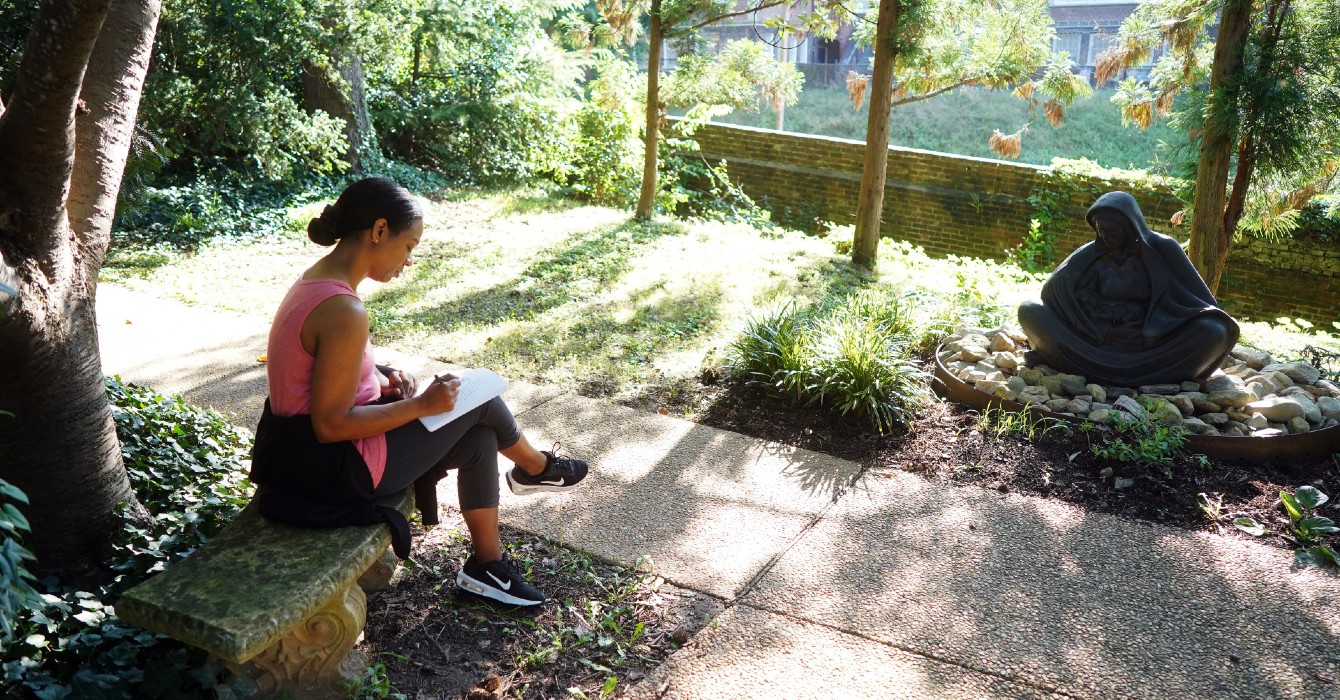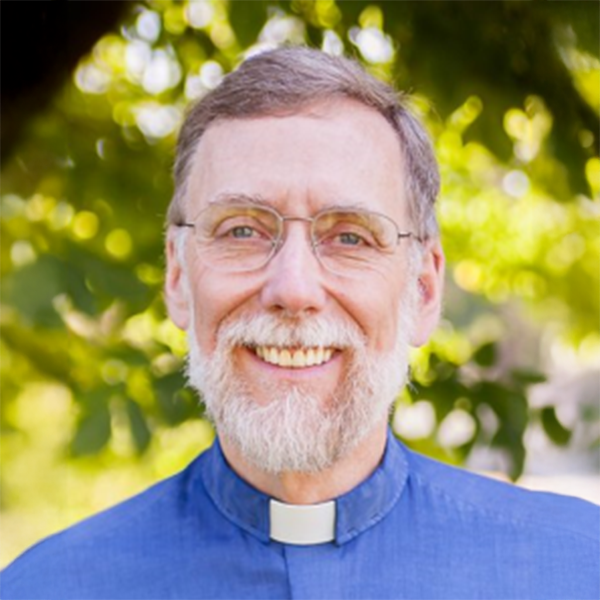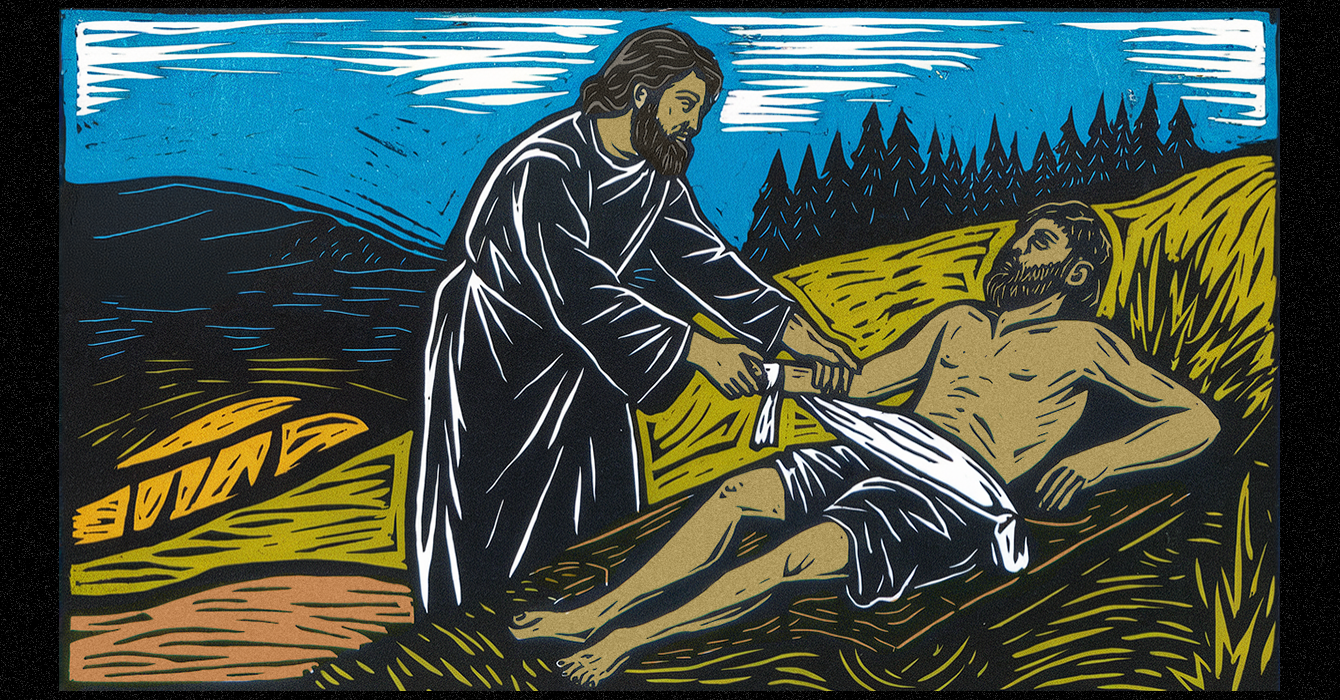It is Sept. 11 here in Afghanistan, a fitting time to reflect on the nature of military chaplaincy and Jesus’ command to love even our enemies. Since the war began, the United States has sustained more than 2,000 casualties. Indeed, last month was the deadliest month the United States and coalition forces have endured so far this year.
For me, a U.S. Army chaplain, casualties are no longer just numbers in headlines but people whom I know and care about. I have close colleagues who regularly lead convoys throughout the region and who lately have been at greater risk.
During my deployment, my capacity to be generous with every side has lessened considerably as I have faced the reality that I could easily lose a friend or a colleague to an IED or rocket attack. Even for me, it has been complicated to remember love when danger has knocked at my door. I have struggled to love my enemies and to pray for those who persecute me -- much less to teach others how to follow Jesus’ instruction.
As a chaplain, I minister to soldiers who work as military police or interrogators, dealing directly with people who have been accused of some form of terrorism. Many of our conversations are about the obvious tensions between quelling, and even killing, our enemies and extending them mercy. Though sometimes I have felt like I was the only one interested in the latter, I am often surprised how many of these young soldiers articulate their own bewilderment over this tension.
Soldiers often want to talk with me about the inner turmoil they feel about those who are labeled “enemy.” On the one hand, these enemy combatants may have killed American troops, which alone generates significant anger and sometimes even hatred. On the other, seeing these people every day, remembering that they, too, are some mother’s son, is enough to make at least some soldiers pause and ask, “Are these also my neighbors?”
Many, especially those who grew up in the church, realize that they are called to more than contempt for their neighbors -- even if those neighbors have harmed their brothers and sisters. But staring into the face of the enemy, knowing how much damage that enemy has done, puts compassion to the test.
When I have the privilege to be in this kind of dialogue with soldiers, I try to temper my theological idealism -- particularly of Christ’s call for love and mercy -- with the knowledge that I don’t have to do their job. It’s easy for me to toe the party line of loving enemies when I do not have to do the difficult work of being in direct relationship with them.
I may see them in passing, while spending time with my soldiers. I may even work with their children as a part of a humanitarian program that encourages education among the Afghan population. But I don’t have to sit in a room with them and listen as they boast about the acts of terror they have committed over 11 long years. It’s much easier to talk about love of enemies from a safe distance than to actually love them when they are an arm’s length away.
As I have reminded my soldiers, and perhaps myself as well, love has many dimensions. At some point, love requires us to take action, to be willing to sacrifice something of ourselves, no matter the cost. At its conception, though, love is a matter of the heart. This is where love begins -- with desire, sometimes even with a dogged determination to nurture something counterintuitive, something that makes no sense, especially in a place like this.
I often wonder why any of my soldiers would want to take the risks that love demands. After months interrogating enemy combatants or working as a part of the guard force, they must realize each day when they go to work that they will likely be disappointed again. Yet some part of them still longs for the possibility of reconciliation that can only grow from the seeds of love.
Every Sunday morning, a small but faithful group of U.S. service members and civilian contractors -- interrogators, military police and criminal investigators -- gathers in our simple chapel for a service of Holy Communion. In one way or another, each one deals daily with those who might be labeled “enemy.”
Over the past 10 months, we have weathered a lot. We have gathered around God’s table in the aftermath of serious incidents that caused both civilian and military deaths. We have celebrated the birth, death and resurrection of Jesus, taken the light of Christ into a dark Christmas morning and sung praises of victory over sin. We have hoped for peace, knowing full well that we are a part of this violent picture.
On most days, despite our disappointment and anger, our shortcomings in following Jesus -- and especially when we seem to have nothing left to hold on to -- we still pray. For as much as we have failed to love our enemies, God has also promised to stand in the void and finish all that we have not been able to do.
God is preparing a table for us in the presence of our enemies, a table where friend and foe will break bread together and neither distinction will matter. As we wait for this day, we remember that we are called to live with a spirit of love, even when it hurts. In the end, we also trust that God’s generosity will make all the difference.









